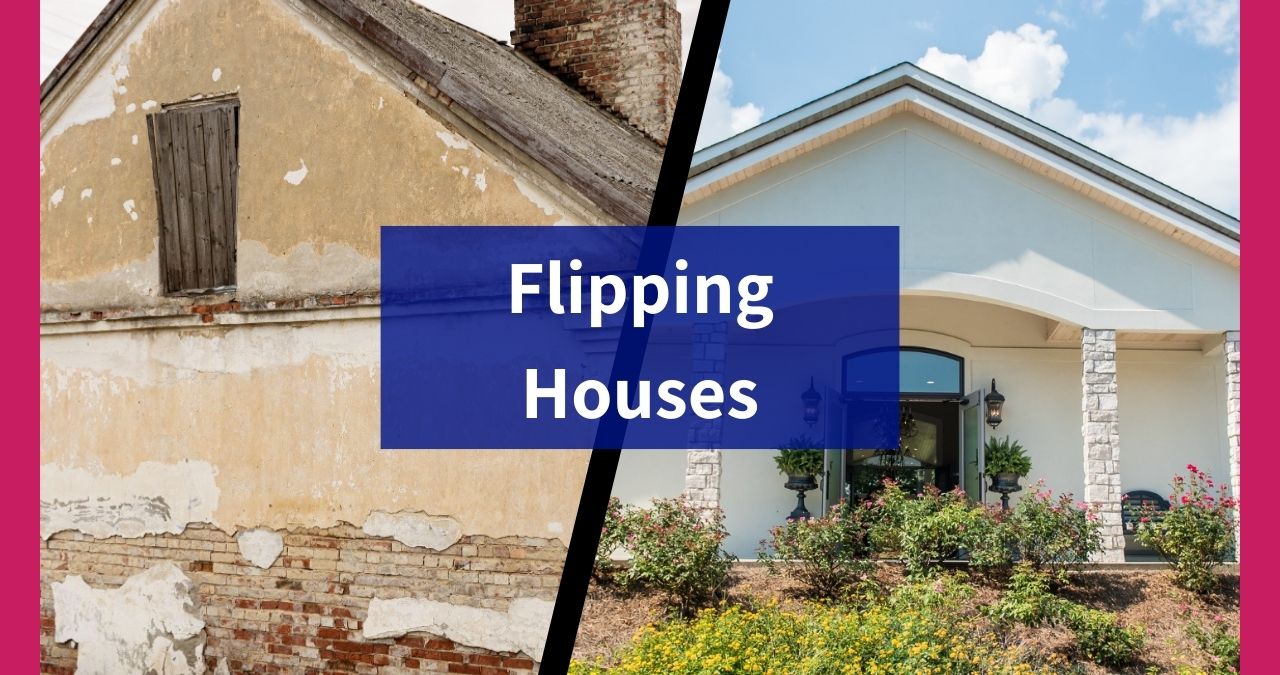Flipping houses has become a popular way to invest in real estate, offering the potential for substantial profits. However, it requires a clear strategy, careful research, and an understanding of the risks involved. In this guide, we explore the benefits and challenges of flipping houses, including common pitfalls to avoid.
What Is House Flipping?
House flipping involves purchasing a property, renovating it, and selling it at a higher price. While it can be lucrative, success requires a balance of knowledge, skills, and timing.
Benefits of Flipping Houses
- Potential for High Returns
Flipping houses can yield significant profits if you buy at a good price and add value through renovations. Properties in up-and-coming neighborhoods often provide the best returns. - Building Real Estate Expertise
By flipping houses, you gain valuable knowledge of the real estate market, renovation processes, and negotiation strategies. - Creative Expression
Renovating properties allows you to transform a house and showcase your creative vision. - Quick Turnaround
Unlike long-term property investments, flipping can generate profits within a few months if managed effectively. - Portfolio Building
Success in flipping can build your reputation as a real estate investor, paving the way for bigger opportunities.
Risks of Flipping Houses
- Market Volatility
Real estate markets can change quickly, impacting your ability to sell at a profit. - Unexpected Costs
Renovations often uncover hidden issues, such as structural damage or outdated plumbing, leading to unplanned expenses. - High Capital Requirements
Flipping requires upfront funds to purchase and renovate properties, which can be a barrier for beginners. - Delays in Selling
Extended time on the market can lead to increased holding costs, such as loan repayments, taxes, and utilities. - Legal Challenges with Certain Properties
Some properties, like bank repossessions, abandoned homes, or disputed properties, come with complications.
Challenges with Special Property Types
Bank-Repossessed Properties
While they often sell at below-market value, bank-repossessed homes may require extensive repairs or have unresolved ownership disputes.
Abandoned or Disputed Properties
- Eviction Issues: Existing tenants or occupants may refuse to leave, requiring legal intervention, such as obtaining a court eviction order.
- Property Vandalism: Vacant houses can attract vandalism, increasing renovation costs.
- Title Disputes: Ensure that ownership is clear to avoid future legal issues.
Tips for Successful House Flipping
- Research the Market
Understand property values and renovation trends in your chosen area. - Set a Realistic Budget
Account for purchase price, renovation costs, holding costs, and contingency expenses. - Work with Professionals
Hire reliable contractors, inspectors, and real estate agents to avoid costly mistakes. - Stick to a Timeline
Delays can erode profits, so maintain a strict project schedule.
Frequently Asked Questions about Flipping Houses
Can you flip houses in South Africa?
Yes, flipping houses in South Africa is possible and can be highly profitable. South Africa’s diverse property market provides opportunities in emerging neighborhoods, distressed properties, and bank-repossessed homes. However, success requires careful market research, budgeting, and an understanding of legal and renovation requirements.
What does flipping a house mean?
Flipping a house refers to purchasing a property, improving its condition through renovations or repairs, and selling it for a profit. The goal is to increase the property’s value quickly and capitalize on the real estate market’s demand for upgraded homes.
Do I need to have a cash offer to flip a house?
While having a cash offer can make purchasing a property faster and more competitive, it is not a requirement. Many flippers use financing options such as home loans, renovation loans, or partnerships to fund their purchases and renovations. Keep in mind that interest and holding costs will impact overall profitability.
What are the most common challenges of flipping houses?
Some common challenges include:
Unexpected repair costs: Hidden issues like plumbing or structural damage.
Legal complications: Problems with title deeds or evicting existing tenants.
Market risks: Changes in demand can delay selling the property.
Time management: Renovations taking longer than expected can increase holding costs.
How much money do I need to start flipping houses in South Africa?
The amount depends on the property’s purchase price, the scale of renovations, and holding costs. A smaller project might require R500,000 to R1,000,000, while larger projects could need significantly more. It’s essential to have a budget with a 10-20% contingency for unexpected expenses.
Is flipping houses in South Africa profitable?
Yes, flipping houses can be profitable, especially when purchasing properties below market value or in developing areas. The profit depends on factors like renovation costs, selling price, and market demand. Proper research and planning are critical to ensuring profitability.
What type of properties are best for flipping?
The best properties for flipping typically include:
Bank-repossessed homes: Often sold below market value.
Distressed properties: Homes needing significant repairs but located in desirable areas.
Abandoned houses: Require renovations but may have great resale potential.
What are the risks of flipping bank-repossessed or abandoned properties?
Flipping such properties comes with risks, including:
Hidden damages: These properties often need extensive repairs.
Tenant evictions: Existing tenants may refuse to vacate, requiring legal action.
Vandalism: Vacant properties may be subject to vandalism, increasing costs.
How long does it take to flip a house?
Flipping a house typically takes 3 to 12 months, depending on the property’s condition, the extent of renovations, and market demand. Proper project management and realistic timelines are key to completing the flip efficiently.
What skills do I need to flip houses?
Successful house flippers often possess or develop the following skills:
Market research and valuation.
Budgeting and financial planning.
Project management for renovations.
Negotiation skills with sellers and contractors.
Do I need a real estate agent to flip houses?
While not mandatory, working with a real estate agent can be beneficial. Agents can help identify good deals, understand market trends, and list the property effectively once it’s ready for sale.
Inspiration: A Flipping Success Story
For a vivid example of the potential in flipping houses, watch this video by Flipping Johannesburg.
Conclusion
Flipping houses in South Africa can be a rewarding venture with the right strategy, diligence, and partnerships. While the benefits are appealing, the risks require careful consideration. Whether you’re flipping a bank-repossessed home or an abandoned property, success depends on understanding the market, managing costs, and planning for potential challenges.
Ready to flip your first property? Start with research, preparation, and a vision for transformation.
If you need advice on finding properties with potential, contact a local real estate professional for guidance. Let us know your thoughts or share your flipping journey with us!








